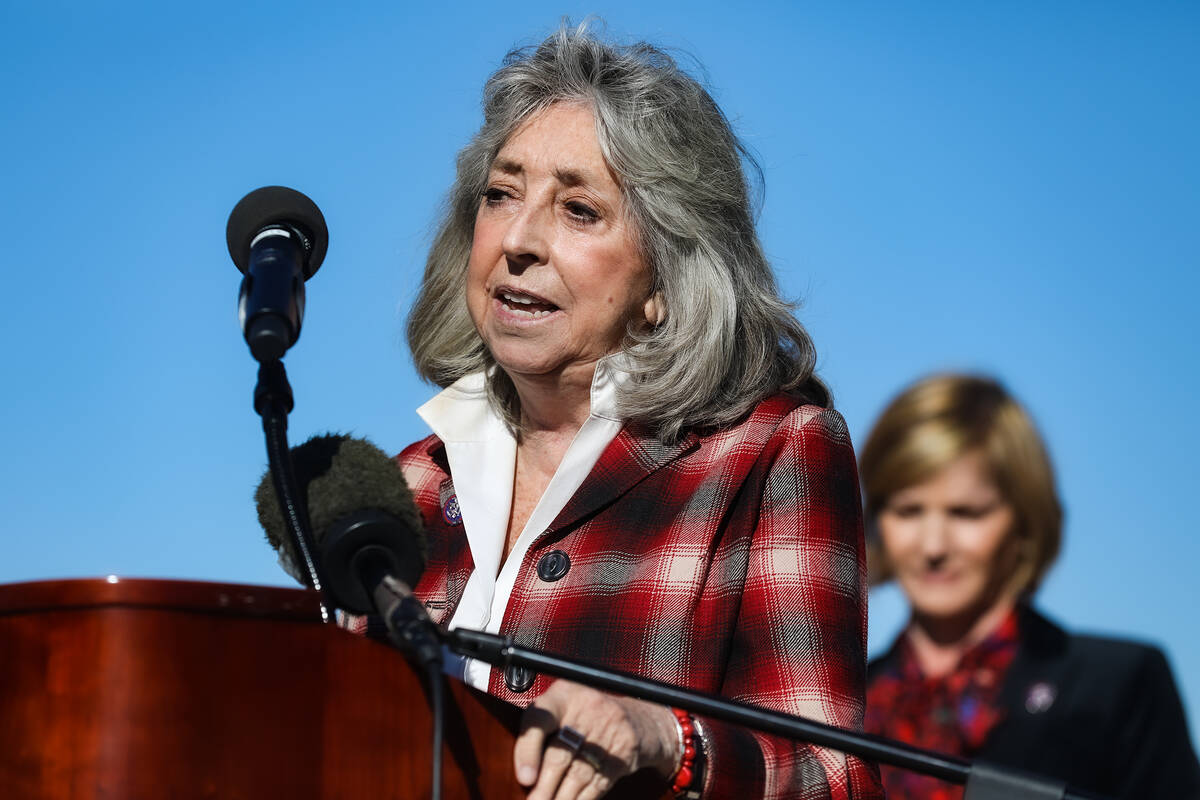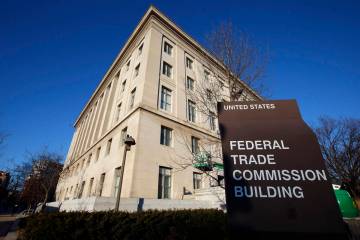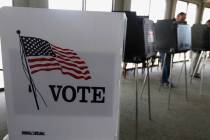Nevadans vote on party lines on anti-inflation bill
WASHINGTON – Nevada’s congressional delegation voted along party lines Friday as the House passed the Inflation Reduction Act, a bill roundly panned by Republicans.
The state’s Democrats hailed the spending bill’s provisions to cap out-of-pocket drug costs for seniors, reduce prescription drug prices, extend public health exchange subsidies and provide $4 billion for drought-plagued states along the Colorado River — all measures that would benefit Nevada.
U.S. Rep. Dina Titus, D-Nev., called the bill “transformative,” and necessary to keep the economy on a comeback from the economic blow of the coronavirus pandemic.
“In Nevada, we have not only recovered all the jobs lost during the economic downturn, but we have an all-time high employment rate,” Titus said in a statement.
Titus, along with U.S. Reps. Steven Horsford and Susie Lee, all voted to pass the bill. All three have supported legislation that would allow Medicare to negotiate prescription drug prices to lower the cost for seniors as well as Affordable Care Act subsidies that could save participants up to $800 per year on insurance premiums, according to the Center for Medicare and Medicaid Services.
“Nevadans sent me to Congress to deliver lower costs for prescription drugs, affordable health care, and policies that will fight this climate crisis with the urgency that it demands,” Lee said.
Horsford said the legislation was needed by seniors on fixed incomes and people in the state struggling with health care costs.
“Today, we took action to fight inflation, slash kitchen table costs, create good-paying jobs and deliver the largest climate investment in our nation’s history,” Horsford said in a statement.
Republicans opposed
Republicans panned the legislation and claimed its tax hikes were job-killing measures that would hurt businesses. They said the tax hikes would be passed down to consumers, and said the increased spending would add to historic inflation currently eroding the financial buying power of families.
The bill includes a 15 percent minimum tax on corporations, and a 1 percent tax on corporate stock buybacks.
In addition, revenue to offset spending in the bill would come from hiring IRS agents that the agency said was needed to fill vacancies and enforce collection of taxes. Republicans warned those new agents would audit family farmers and businesses.
“If you think 87,000 new IRS agents is good policy when there are only 19,500 border patrol agents on the Southern border, I disagree,” said U.S. Rep. Mark Amodei, R-Nev., said in a statement.
Amodei, the lone Republican in the Nevada delegation, said he opposed increased taxes on businesses because they would increase “costs for hardworking citizens” in the state.
He voted against the bill, which now goes to President Joe Biden for his signature.
Deficit reduction
The legislation includes $300 billion for deficit reduction, and the prescription drug cap of $2,000 per year for those on Medicare would not take effect until 2025. Those expenditures would be offset by the new tax hikes.
Most economists and analysts said the law would reduce the deficit, if only slightly, diminishing partisan claims that the legislation was either a cure all or a curse.
Biden first sought a $3.7 trillion spending bill, known then as the Build Back Better Act, which was trimmed to a revised $2 trillion version passed by the House earlier this year.
Senate moderate Democrats trimmed it further. Using budget reconciliation rules to avoid a filibuster, the Senate passed the smaller bill Sunday, 51-50, with Vice President Kamala Harris casting the tie-breaking vote.
U.S. Sens. Catherine Cortez Masto and Jacky Rosen, both Democrats, were instrumental in adding $4 billion for the U.S. Bureau of Reclamation for measures to increase Colorado River flows to Lake Mead and Lake Powell, as well as clean energy tax credits for solar, wind and geothermal energy.
Cortez Masto was part of a group of Western states senators who added the drought aid, to be used to pay farmers and growers to not use water allotments and pay for repairs and canals to increase flows into the reservoirs.
The three-year extension for public exchange subsidies and the tax credits for solar panels were inserted into the bill by Rosen and other lawmakers from clean energy producing states.
Contact Gary Martin at gmartin@reviewjournal.com. Follow @garymartindc on Twitter.





























